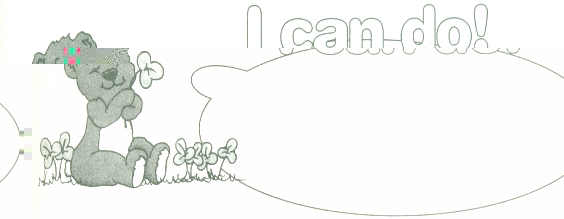U3-U4语法+阅读D
Unit 3
单词——过去式——过去分词
see-saw-seen | give-gave-given | make-made-made |
build-built-built | take-took-taken | put-put-put |
leave-left-left | come-came-come | catch-caught-caught |
find-found-found | eat-ate-eaten | sTOP-sTOPped-sTOPped |
keep-kept-kept | write-wrote-written | drive-drove-driven |
break-broke-broken | say-said-said | teach-taught-taught |
know-knew-known | go-went-gone | hear-heard-heard |
get-got-got | has/have-had-had | buy-bought-bought |
rob-robbed-robbed | admit-admitted-admitted | dial-dialled-dialled |
hold-held-held | know-knew-known | plan-planned-planned |
cut-cut-cut | cosplayt-cosplayt-cosplayt | read-read-read |
fall-fell-fallen | run-ran-run | fight-fought-fought |
steal-stole-stolen | buy-bought-bought | sell-sold-sold |
Unit 4
1.基数词变序数词

基变序,比较容易,1,2,3,特殊记,结尾字母t,d,d,
8少t,9去e, ve要用f替。
几十几只变个位就能,
整十变序也容易,y变ie就能。
末尾th别忘记。
注意:four—fourteen—forty—forty-two nine—nineteen—ninety—ninety-nine
fourth—fourteenth—fortieth—forty-second ninth—nineteenth—ninetieth—ninety-ninth
2.几种特殊数词表达法:
(一)普通分数: 子基母序,分子>1,分母+S
1/3: one third 2/3: two thirds
1/2:读作 a half或one half
1/4读作 a quarter 或one fourth
(二)百分比:基数词 + percent
2%读作 two percent 27%读作 twenty-seven percent
(三)习惯表达:
one and a half apples= one apple and a half 一个半苹果
half an apple半个苹果 one or two apples= one apple or two 一两个苹果
10:30 half past ten
10:25 twenty–five past ten
9:45 fifteen to ten 或 a quarter to ten
3.加减乘除---数字的运算
(一)入门知识:=: is/ equals +: plus -:minus *: multiplied by /: divided by 都是介词。
加法:3 plus 9 is/equals 12. 减法:9 minus 3 is/equals 6.
乘法:3 multiplied by 9 is/equals27. 除法:9 divided by 3 is/equals 3.
(二)句型:一般用“加减乘除”的动词原形来开头,构成祈使句,命令做题者。
Add A and B Subtract A from B
Multiply A by B Divide A by B
If we add 2 to 5, we can get 7. Multiply 2 by 3, please.
4.读数:
1000以上数,用计数符号,每三位加以逗号,从第一个逗号起单位依次为thousand, million, billion.“万”表达为ten thousand

例:579 five hundred and seventy-nine
802 eight hundred and two
4, 352 four thousand three hundred and fifty-two
14, 615 fourteen thousand six hundred and fifteen
123, 456, 789
one hundred and twenty-three four hundred and fifty-six thousand seven hundred and eighty-nine
5.常考易错点:
确数与概数的表达:
确数:基数词+单位+复数名词: two hundred students 200名学生
概数:单位加S +of+复数名词:thousands of visitors 成千上万的游客
in + 物主代词 + 数词的复数形式,表示某人的年龄。
in one’s thirties 在某人三十多岁的时候
隋堂小测练:
I.Choose the best answer.
1. There are several __________ people in the park now. It's very crowded.
A. thousands of B. thousand C. thousand of D. thousands
2. Rose received a letter full of love from her parents on her ______ birthday.
A. sixteen B. sixteen’s C. sixteenth D. sixteenths
3.They’ve done only ______ of the work. It’s impossible for them to finish it on time.
A. three-tenth B. three-tenths C. third-tenths D. third tenth
4. - How many new words are there in ______ lesson?
- There are only ______.
A. five; fifth B) fifth; five C. the fifth; the five D. the fifth; five
5. about ______ of the boys ______ interested in the game.
A. three-fourths; is B. three-four; is
C. three-fourths; are D.three-fours; are
6.-Is tomorrow your father’s ______ birthday?
-No, it’s his forty-sixth birthday—he is already in his ______.
A. forties; fortieth B. fortieth; forties C. fortieths;fortieth D. forty; forties
7. The captain has an______ son.
A. eleven-years-old B. eleven years old
C. eleven year old D. eleven-year-old
8. _______ the students in the world are sending information by E-mail every day.
A.Many millions B. Several millions of
C.Several million D.Several million of
9. We watched an______ performance given by London at the closing ceremony of the Beijing
Olympic Games.
A. eight minutes B. eight minute C. eight-minutes D. eight-minute
10. about ______ schools in the city welcomed a new kind of letter box in mid-September.
A. hundred B. hundreds of C. two hundreds D. two hundred
11. ________ of the students of Grade ________ are girls who like singing.
A) Three-fifths ... Nine B) Three-fifth ... Ninth
C) Three-fifths ...Ninth D) Three-fifth ... Nine
12.______ Chinese make their way back home before the Spring Festival.
A)Million of B)Ten millions C)Millions of D)Ten millions of
13. The CN TV Tower(which is in Canada)is a _______ building.
A.553 meters tall B. 553-meters tall C. 553-meters-tall D. 553-meter-tall
14. Obama paid a ______ visit to China. He was warmly welcomed by Chinese people.
A) four days B) four-day C) four-days D) four-days'
15.Over _______students in our school like surfing on the Internet.
A) three hundred B) three hundreds C) hundred of D) three hundred of
Keys:
1-5 BCCDC 6-10 BDDDD 11-15 ACDBA
阅读D篇解题方法
解题方法:
通读全文。通读全文、弄了解段落大意及文章的中心意思与作者的基本看法、态度,正确理解语境。
按题查读,即依据问题去探寻答案。
简练作答。组织答案时,注意防止语言错误,如:时态、主谓一致、句子结构和拼写等。如需引用原文,要作适合改动,最好不要整句照搬.
认真核查。逐一检查所填的词是不是符合原文主旨和细节,是不是答非所问,是不是仍存在语法、词语拼写等错误。
答案形式要符合提问方法。如原文中提问方法为“why”,那样就要用“because”引导的从句来回答。
回答问题规范性:
用How提问,回答要以by开头
A. How did the judge solve the student’s problem?
B. By making the restaurant owner hear the sound of the falling coins.
用where/when提问,要以介词in/ on/ at等开头
A. Where did the student live?
B.In a small room near a restaurant.
A. When did Eppie Lederer begin to write an advice column for the Chicago Sun Times?
B .In 1955.
补充:When提问的题目经常见到,但应该注意,一般不可以照抄原文。看下面三种表达:
When did you come to Shanghai?
①在2012年→In 2012. ②两年前→Two years ago.
③当我是孩子子的时候→When I was a boy.
通过这几个句子,可知when提问有三种回答办法:介词+时间点;时间段+ago; when+句子。
注意:
1)用时间状语从句回答时,when不可以省略。
2)特别注意表示时间的词前面是不是有约数词如about, around等。
用how many提问,应该注意数字前是不是有限定词more than/ at least/about等。
A How many readers do the two columns have?
B Nearly 200 million readers .
用why提问,要以because 开头回答, 或者以To do开头回答。
A.Why did the student feel afraid?
B.Because the judge said he was wrong / he had only a few coins/ he had no money.
A.Why did Lederer ask her readers to write letters to The U.S. Congress?
B.To make them pass the law.
用whom提问,要以介词with/by等回答。
A.Whom did Sam live with in the Wild Catskill Mountains?
B.He lived with himself.
How long提问时应该注意区别在目前完成时态中要用for+一段时间(since+时间点)开头回答,
其他则直接回答。
A.How long have you stayed in Shanghai? B. For 3 years.
A. How long did it take you to go to school by bus? B. 3 hours.
注意回答时态:
A. How was the food in the restaurant?
B. The food was delicious/good.
反义疑问句:
Example 1. Both Eppie Lederer and Pauline Phillip love their jobs, don’t they?
步骤:A. 去掉反义部分(即don’t they)
B. 把前半部分的陈述句改为疑问句,即
Do both Eppei Lederer and Pauline Phillip love their jobs?
C. 可以正常回答了。
Example 2 The student wasn’t happy living in the small room, was he?
步骤:A. 去掉反义部分(即was they)
B. 把前半部分的否定句改为一定句,即
The student was happy living in the small room.
C. 再把一定句改为疑问句,即Was the student happy living in the small room
D. 可以正常回答了。
注意:无论陈述句是一定还是不是定,反义疑问句的回答必须要遵循事实来回答,事实上是一定的就回答Yes,事实上是相反的就回答No
选择疑问句:
based on her speaking, how do we stay young, to laugh or to cry?
回答时,不以yes/no开头,直接选择其中一项回答,即 We stay young to laugh.
主观题:
要以文章中心思想为基础,一般看文章最后一段的意思,再用自己话概述
As a teenager, will you run away from home? Why?
B Because this was just the kind of forest he always dreamed about.
【典例剖析】
Letter A
Young people are always told that they should make the most of their time,that they will never be as free again So,my question is-why fill up all this free time with housework?Parents expect their children to get good grades,be good at sports,and be![]() popular with other kids.
popular with other kids.
However,there is not enough time in the day to do these things and then do housework as well.It's not fair to expect teenagers to give up their precious time to do boring housework.Parents and children both have jobs.Parents' jobs are in the work place.Their children's jobs are at school.
The only difference is that parents get paid and children don't.Parents say that they make their kids do housework to teach them responsibility.But this is just a trick.Parents trick their kids into doing housework because they are lazy.
Yours,
Overloaded
Letter B
Both parents and children have jobs.The parent's job is to go to work to earn money.The child![]() 's job is to go to school.But we all get hungry.Someone has to cook the meals and clean up afterward.We all wear clothes that get dirty.Someone has to wash them,iron them,and put them away.Children work from 9 until 4.Parents work from 8 until 6.Sure,after 4 o'clock,children have homework.But after 6,parents have homework too.They have to do the shopping,go to the bank,pay the bills,and help their kids with their own homework!
's job is to go to school.But we all get hungry.Someone has to cook the meals and clean up afterward.We all wear clothes that get dirty.Someone has to wash them,iron them,and put them away.Children work from 9 until 4.Parents work from 8 until 6.Sure,after 4 o'clock,children have homework.But after 6,parents have homework too.They have to do the shopping,go to the bank,pay the bills,and help their kids with their own homework!
I think it's only fair that teenagers help out a bit at home.They might not like it,but it's good for
them.It teaches them how to look after themselves.This is really useful when __________.
Sincerely,
Overworked[来源:Z">88.What is the writer’s question in Letter A?
____________________________________________________________________
89.How are parent’s jobs different from children’s jobs according to Letter A?
____________________________________________________________________
90.Why does Letter B say it’s good for teenagers to help out a bit at home?
____________________________________________________________________
91.Who most probably wrote Letter B,a parent or a child?
____________________________________________________________________
92.The two letters agree that parents and children both have jobs,don’t they?
____________________________________________________________________
What can be filled in the blank at the end of letter B?
____________________________________________________________________
【分析】
88. Why fill up all this free time with housework?第一段第二行,细节理解题。
89. Parents get paid (and/but children don't).第一段倒数第三行,细节理解题。
90. (Because the writer thinks)it teaches children how to look after themselves.第三段的倒数第一行。
91. A parent.选择疑问句不可以用yes/no回答,直接回答选项。推理判断题。
92. Yes,they do. 主旨理解题。
93. They leave home to go to college or to live on their own.推理判断题。







